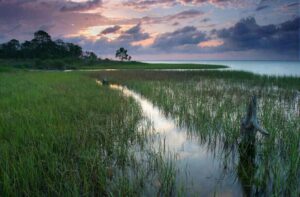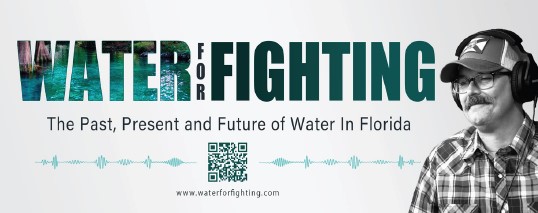By STAFF REPORTS
Wednesday in Havana in front of a sea of supporters and opponents of Florida setting up a bear hunt, Florida Fish and Wildlife Conservation Commission members voted to approve a limited bear hunt starting in December 2025.
Nearly 170 people signed up to speak to commissioners, with many dressed in orange shirts representing various hunting groups and many wearing shirts featuring bears. The meeting filled up three rooms of attendees.
“Commissioners, if you decide to reopen regulated hunting, it would provide access to the resource and help manage the population,” said FWC Chief Conservation Officer George Warthen. “This science-informed approach could use hunting as a tool to manage the growth rates and bear-management units with the largest sub-populations.”

He began the meeting laying out statistics about the black bear population in Florida. He said that between 2002 and 2015, there has been a 50 percent population increase and the occupied range of the species has increased from 17 to 51 percent since 1992.
Before Wednesday, only six states didn’t have regulated bear hunting, with Florida’s bear population reaching roughly 4,000.
FWC staff recommended a hunt with certain specifications:
- An application process for 187 permits with a random drawing
- $5 per application with an unlimited number of entries
- Permits cost $100 for residents and $300 for non-residents
- Permittees would only be allowed one bear per season
- Hunters would be required to affix tags to harvested bears and make them available to FWC for testing
- No cubs or females with cubs present allowed
- No hunting of populations with less than 200 bears
- Feeding stations allowed
- Bows and arrows allowed
- Use of bear-hunting dogs is allowed, with training in 2026 and hunting in 2027
Gulf County Commissioner Sandy Quinn spoke in favor of a bear hunt, highlighting his community’s concern with encounters.
“Over the past several years, we’ve seen a growing concern among residents among the black bear increasing population,” he said. “We need to address the root issue and that means taking meaningful steps to manage the population before serious incidents occurred. Our citizens are worried.”
Opponents of the bear hunt, however, called the agency rule change “barbaric” and “unethical.” Some argued in favor of a delay to gather more data on bears, some disputed the agency’s science on the matter, while still others referenced the Bible and Native American connections to the bear as reasons to not move forward.
Diamond Bergeron, Vice President of Bergeron Everglades Foundation, whose father Ron Bergeron formerly served as an FWC Commissioner, sought a delay.
“are not opposed to a bear hunt if and when the data supports a targeted, science-based approach guided by transparent protocols and accountability measures,” she said. “However, the current proposal lacks both.”
The last of the nearly 170 speakers was a 9-year-old girl.
“I care a lot about Florida’s black bears, and I don’t think we should hunt them. But if we have to, it should be done in the most humane way possible – that means no arrows and no dogs,” said Kelsey. “Bears are part of Florida’s wild family. They help our forests, and they deserve to life without being chased or hurt for sport.”
Commissioners then asked several questions of FWC staff to clarify their recommendations on the hunt and to defend the science they presented that many speakers disputed.
Commissioners then unanimously passed the bear hunt.

















